This week’s escalation in Brexit uncertainty is increasing dialogue on the many possible outcomes, all of which paint a negative picture for the beef industry.
These outcomes are stemming from the UK releasing its tariff proposals, but there may yet be more twists in this prolonged saga.
A number of agents reported on Wednesday they received calls from producers now more anxious to move stock.
The reality is that factories have been closely controlling throughput in recent weeks, so even if producers are keen to move cattle quicker, there is generally a time lag, ranging from a few days to a week to 10 days, to get cattle accepted for slaughter.
The cattle kill has ranged from 35,267 head to 35,867 head for the last three weeks with last week’s kill recorded at 35,346. This excludes calf throughput of 1,957 head, bringing the overall kill to 37,303 head. This is about 500 cattle behind the corresponding week in 2018, with year-to-date throughput running 30,775 head higher.
Over 10,000 of this increase is due to the lower throughput during the Beast from the East snow storm in 2018.
There is no change in price, with steers trading on a base of €3.75/kg and heifers 10c/kg higher on a base of €3.85/kg.
Last week’s steer throughput increased 736 head to 12,100, with heifers also running above normal at 10,743 head. The year-to-date heifer kill is running 12,555 head higher.
Cow supplies continue to tighten, with last week’s kill of 6,839 down another 273 head. This is creating more competition in the market, with prices in cases lifting by 5c/kg.
However, this is very variable between plants, creating an even wider differential.
P+3 grading cows are trading anywhere from €2.60/kg to €2.80/kg, with O grading cows from €2.80/kg to €2.95/kg.
A high percentage of R grading cows are trading from €3.00/kg to €3.10/kg, but up to €3.20/kg has been paid.
Likewise, U grading cows range from €3.15/kg to €3.20/kg, but plants most active for cows and operating in the wholesale and carcase trade have paid as high as €3.35/kg to €3.40/kg.
The bull trade remains difficult, with Friesian and overage bulls slow to move.
Quotes for overage Friesian bulls continue to average around the €3.00/kg to €3.10/kg mark, with top prices rising to €3.20/kg. Underage O grading bulls are selling to a top of €3.35/kg to €3.45/kg.
R grading bulls range from €3.40/kg to €3.60/kg, while U grading bulls range from €3.50/kg to €3.70/kg, excluding any penalties on weight. These are typically 15c/kg to 20c/kg on carcases weighing in excess of 430kg to 440kg.
Northern trade
The strong northern kill of 7,228 steers, heifers and young bulls, along with 1,587 cows, is leaving factories with the upper hand in negotiations.
The U-3 base quote ranges from £3.30/kg to £3.34/kg. Brexit uncertainty is leading to even more exchange rate volatility. At Wednesday afternoon’s exchange rate of 85.7p to the euro, this equates to €3.85/kg to €3.90/kg and €4.06/kg to €4.11/kg including VAT at 5.4%. Top returns are reported at £3.40/kg (€4.18/kg) to £3.44/kg (€4.23/kg), with heifers slightly stronger than steers.
The latest AHDB price report shows last week’s British beef price reducing 4p/kg for steers and heifers. R4L steers average £3.53/kg (€4.34/kg), with heifers averaging £3.49/kg (€4.29/kg). The AHDB highlights higher supplies of Irish beef in the marketplace as putting pressure on British prices, while reduced consumer confidence is also having an effect.
Read more
Northern view: prime cattle quotes holding steady
This week’s escalation in Brexit uncertainty is increasing dialogue on the many possible outcomes, all of which paint a negative picture for the beef industry.
These outcomes are stemming from the UK releasing its tariff proposals, but there may yet be more twists in this prolonged saga.
A number of agents reported on Wednesday they received calls from producers now more anxious to move stock.
The reality is that factories have been closely controlling throughput in recent weeks, so even if producers are keen to move cattle quicker, there is generally a time lag, ranging from a few days to a week to 10 days, to get cattle accepted for slaughter.
The cattle kill has ranged from 35,267 head to 35,867 head for the last three weeks with last week’s kill recorded at 35,346. This excludes calf throughput of 1,957 head, bringing the overall kill to 37,303 head. This is about 500 cattle behind the corresponding week in 2018, with year-to-date throughput running 30,775 head higher.
Over 10,000 of this increase is due to the lower throughput during the Beast from the East snow storm in 2018.
There is no change in price, with steers trading on a base of €3.75/kg and heifers 10c/kg higher on a base of €3.85/kg.
Last week’s steer throughput increased 736 head to 12,100, with heifers also running above normal at 10,743 head. The year-to-date heifer kill is running 12,555 head higher.
Cow supplies continue to tighten, with last week’s kill of 6,839 down another 273 head. This is creating more competition in the market, with prices in cases lifting by 5c/kg.
However, this is very variable between plants, creating an even wider differential.
P+3 grading cows are trading anywhere from €2.60/kg to €2.80/kg, with O grading cows from €2.80/kg to €2.95/kg.
A high percentage of R grading cows are trading from €3.00/kg to €3.10/kg, but up to €3.20/kg has been paid.
Likewise, U grading cows range from €3.15/kg to €3.20/kg, but plants most active for cows and operating in the wholesale and carcase trade have paid as high as €3.35/kg to €3.40/kg.
The bull trade remains difficult, with Friesian and overage bulls slow to move.
Quotes for overage Friesian bulls continue to average around the €3.00/kg to €3.10/kg mark, with top prices rising to €3.20/kg. Underage O grading bulls are selling to a top of €3.35/kg to €3.45/kg.
R grading bulls range from €3.40/kg to €3.60/kg, while U grading bulls range from €3.50/kg to €3.70/kg, excluding any penalties on weight. These are typically 15c/kg to 20c/kg on carcases weighing in excess of 430kg to 440kg.
Northern trade
The strong northern kill of 7,228 steers, heifers and young bulls, along with 1,587 cows, is leaving factories with the upper hand in negotiations.
The U-3 base quote ranges from £3.30/kg to £3.34/kg. Brexit uncertainty is leading to even more exchange rate volatility. At Wednesday afternoon’s exchange rate of 85.7p to the euro, this equates to €3.85/kg to €3.90/kg and €4.06/kg to €4.11/kg including VAT at 5.4%. Top returns are reported at £3.40/kg (€4.18/kg) to £3.44/kg (€4.23/kg), with heifers slightly stronger than steers.
The latest AHDB price report shows last week’s British beef price reducing 4p/kg for steers and heifers. R4L steers average £3.53/kg (€4.34/kg), with heifers averaging £3.49/kg (€4.29/kg). The AHDB highlights higher supplies of Irish beef in the marketplace as putting pressure on British prices, while reduced consumer confidence is also having an effect.
Read more
Northern view: prime cattle quotes holding steady



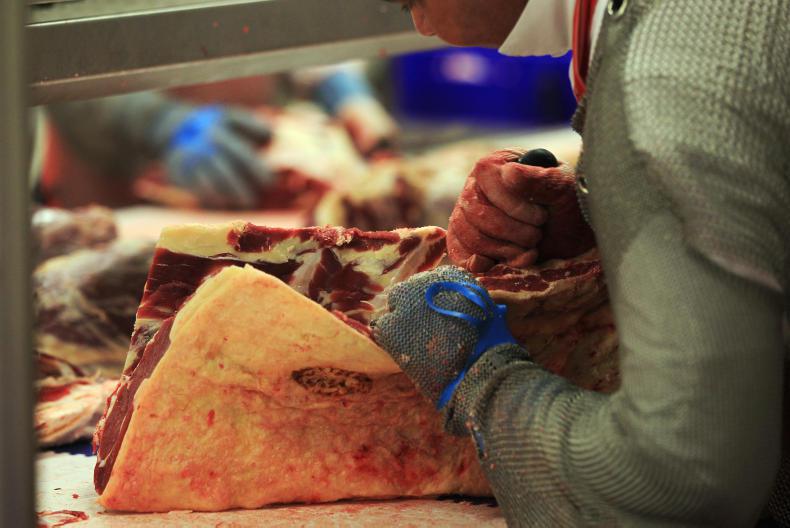

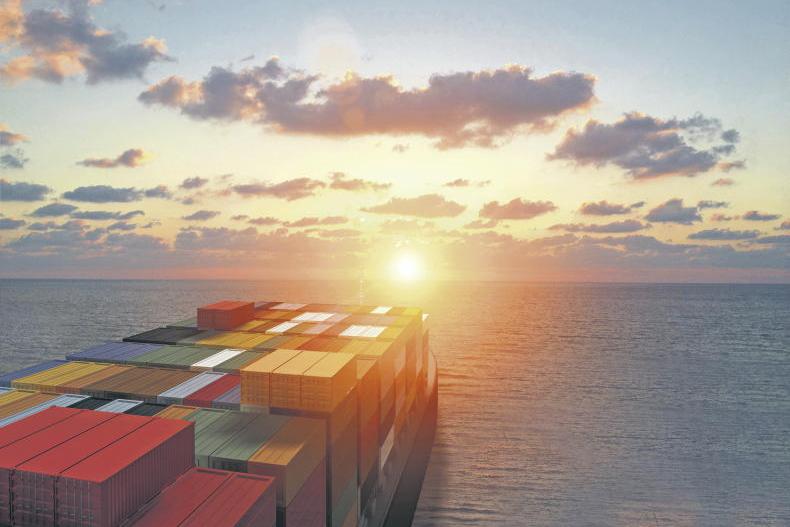

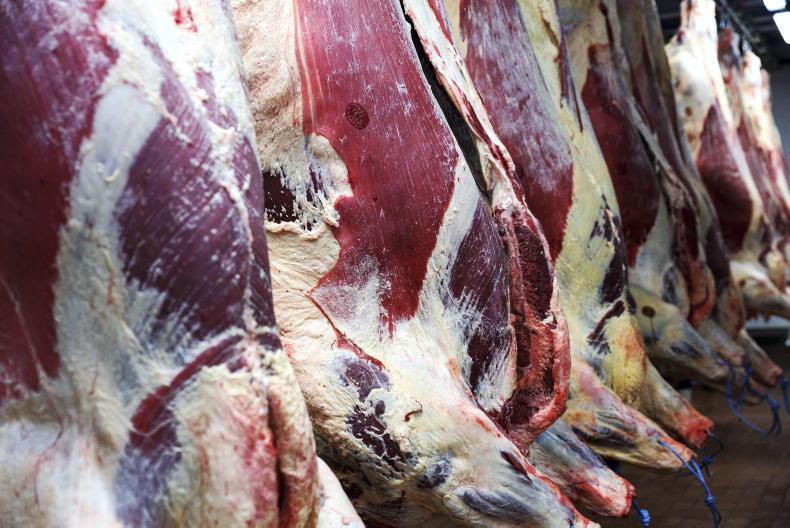
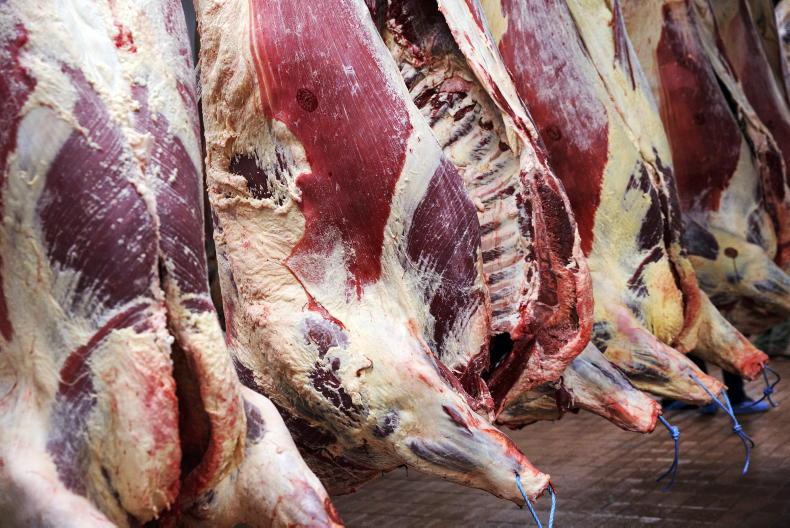
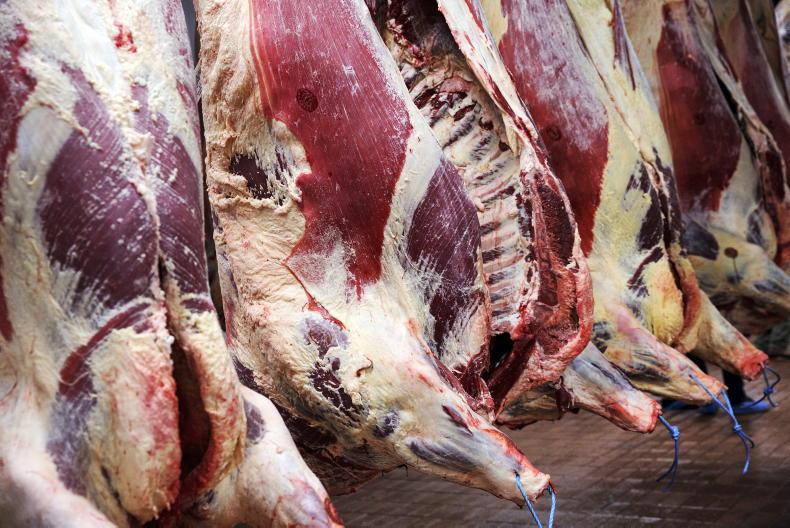
SHARING OPTIONS